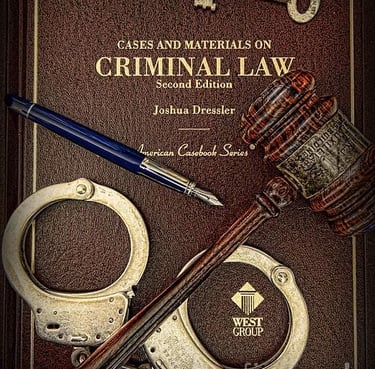
About the Cases
Our Working Hours 08:30-17:00
FAMILY CASES
Family (Marriage and Divorce) Law No. 1/98, in force in the Turkish Republic of Northern Cyprus (TRNC), is the fundamental legislation governing matters such as marriage, divorce, property regime, alimony, custody, and domestic violence.
💔 Types and Conditions for Divorce:
1. Consensual Divorce
• Spouses must have been married for at least one year.
• The parties must agree on the financial consequences of the divorce and the status of the children, and these matters must be declared before the court.
2. Contested Divorce:
• This is applied when one spouse does not want a divorce or when there is disagreement about the results of the divorce.
• Grounds for divorce include abandonment and severe incompatibility.
⚖️ Property Regime and Division:
• The law does not allow spouses to choose a different property regime; the legal property regime automatically applies.
• Property acquired during a marriage is considered "acquired property" and is shared in the event of divorce.
• The court determines the division of property so that one party retains at least 1/3 and at most 2/3 of the property.
👶 Custody and Alimony;
• When deciding on child custody, the child's age, physical and mental health, material and spiritual needs, and the circumstances of the parents are taken into consideration.
• The court may order alimony payments based on the needs of the child and spouses.
🛡️ Domestic Violence and Protection Measures;
• Amendments made in 2015 introduced provisions to protect victims of domestic violence.
• The court may issue protection orders and award alimony and compensation upon the victim's request.


Property Regime and Division:
Property subject to division:
Moveable and immovable property acquired during the marriage, bank accounts, stocks, social security payments, compensation payments, income from personal property, and property disposed of within the two years preceding the divorce case are divided.
One party's share cannot exceed two-thirds of the total estate.
Criteria to be considered in division:
Numerous factors are considered, including the parties' income, earning capacity, assets, future needs, children's status, contributions made during the marriage (including housework and childcare), health, age, and duration of the marriage.
Declaration of Assets:
The parties must list their assets and submit documentation to the court at the beginning of the case.
If they fail to do so, their claims may be disregarded.
Institutions such as banks and companies are also required to provide information by court order.
Disposed Assets:
Property sold without the other party's consent within the two years preceding the divorce case is taken into account in the division.
Division of Debts:
Debts not incurred during the marriage and arising entirely from the fault of one party may be left with the party at fault.
Division Methods:
Movable property, cash, compensation, etc., are directly divided.
For immovable property, the market value is determined; the party in possession of the property pays their share to the other.
Personal property is not divided.
Personal belongings, premarital property, inheritances or unrequited gains, and moral damages are not included in the division.
However, their income or contributions made during the marriage are shared.
Company Shares:
The increase in the value of shares during the marriage is also taken into account in the division.
24/7 Online Appointment Request
Face to face meeting opportunity
ACQUIRING REAL ESTATE
The acquisition of real estate by foreign nationals in the Turkish Republic of Northern Cyprus (TRNC) is regulated by Law No. 39/2024, "Amendment to Real Estate Acquisition and Long-Term Leasing (Foreigners)," which entered into force on May 21, 2024. This law introduces certain restrictions and procedures for the acquisition of real estate by foreign nationals.
🏠 Conditions for Real Estate Acquisition by Foreign Nationals
1. Purchase Permit and Security Check: To purchase real estate, foreign nationals must apply to the TRNC Ministry of Interior and receive approval from the Council of Ministers. A criminal record check and security check are conducted during this process.
2. Property Limits:
• Land Acquisition: Foreign individuals may purchase vacant land up to 1,338 square meters (1 decare) and construct one residence on this land.
• Acquisition of Housing: Foreigners may purchase a maximum of one apartment or house. However, citizens of countries that recognize the TRNC may acquire three apartments or houses.
3. Agricultural and Forest Lands: The sale of agricultural and forest land to foreign individuals or legal entities is prohibited.
4. Regional Restrictions: There are restrictions on the regions where foreigners can acquire real estate. For example, real estate acquisition is prohibited in military zones.
5. Total Sales Limit: Real estate sold to foreigners must not exceed 7% of the district's surface area or 3% of the country's surface area.
📝 Application and Registration Process
• Sales Contract Registration: Foreign buyers must register the sales contract with the relevant land registry office before applying to the Ministry to purchase real estate. This registration process is crucial for the legal security of the property.
• Building Permit: If condominium ownership or floor easement has not yet been established on the property, foreigners can apply with a building permit.
⚠️ Important Points to Consider
• Ownership Status: The ownership status of the property to be purchased and any restrictions such as mortgages or liens should be checked with the Land Registry and Cadastre Office.
• Process Monitoring: Applications must be submitted and transactions completed within the specified timeframes during the property acquisition process.
• Legal Consultation: Obtaining legal consultancy during the property acquisition process is important to prevent potential grievances.
CRIMINAL CASES
What is the judicial system in criminal cases in the TRNC? What are the stages in criminal cases in the TRNC?
In the Turkish Republic of Northern Cyprus (TRNC), the trial procedures and competent courts in criminal cases are regulated under the Code of Criminal Procedure, Chapter 155 (Cap. 155). This law dates back to the British era and has been amended over time. Here is basic information about the judicial system in criminal cases in the TRNC under Chapter 155:
Criminal cases in the TRNC consist of two stages:
1. The Security Stage:
The suspect is held in police custody for a limited period during the police investigation, in accordance with Chapter 155.
The purpose is to prevent the suspect from interfering with the investigation and to preserve evidence.
Once the investigation is complete, the suspect may:
- Be placed on bail,
- Be sent to prison (for a maximum of 3 months),
- Be banned from leaving the TRNC,
- Have their travel documents confiscated.
2. Trial Phase:
After the police investigation is complete, the main trial begins.
Evidence is presented, witnesses are heard, and the court decides whether the crime is proven.




Contracts are one of the most fundamental instruments of legal relations between individuals and institutions. These agreements, formed by the mutual expression of will between the parties, are considered legally valid if certain conditions are met and create rights and obligations for the parties. However, not every agreement is legally valid. The Contract Law clearly regulates the circumstances in which an agreement is considered a contract and is considered valid.
Elements of a Valid Contract
1. Exclusion from Cases of Invalidity
The law deems some agreements directly void. For example, agreements concerning betting, contracts restricting marriage, or contracts restricting profession and trade are void. Therefore, for a contract to be valid, it must not be expressly prohibited by law.
2. Capacity of the Parties
To enter into a contract, the parties must be competent. Individuals who are of sound mind, of legal age, and not deprived of contractual capacity by any law may enter into a contract. Contracts made by minors are not considered valid except in limited circumstances.
3. Formation with Free Will
The free expression of the parties' will is essential in contracts. Consent given under duress, threats, pressure, fraud, undue influence, or misrepresentation is not considered free. In such cases, contracts are voidable.
4. Legal Consideration (Consideration)
For a contract to be formed, there must be a consideration between the parties. This consideration must be lawful. An illegal, fraudulent, public order, or immoral consideration will render the contract void.
5. Legal Purpose
The subject and purpose of a contract must be in accordance with the law, public order, and morality. Contracts with prohibited, fraudulent, or harmful purposes are not valid.
6. Compliance with Form Requirements
For some contracts to be valid, certain formal requirements must be met. For example, contracts regarding the acquisition of real estate by foreigners will become invalid if they are not registered with the Land Registry Office within a certain period.
7. Not Including Impossible Acts
Agreements made from the outset regarding an impossible act are void. If the act becomes impossible after the contract is formed, the contract automatically terminates.
The validity of contracts depends not only on the mutual consent of the parties but also on the form and content requirements stipulated by law. The parties' capacity, the free expression of will, the existence of a legal consideration and purpose, the avoidance of impossible acts, and compliance with the necessary formal requirements are the fundamental conditions for the validity of a contract. Therefore, for the sake of legal certainty, it is crucial for parties to consider these elements when entering into a contract.


CONTRACTS
Cyprus Lawyers and Legal Consultancy
This site has been prepared for the purpose of conveying accurate information and has been prepared in accordance with the principles of respect for the prohibition of advertising or publications of an advertising nature, taking into account the rules of Chapter 2 of the Lawyers Act and the 1981 Lawyers Regulation (Execution of the Profession and Ethics).
Contact
HELP
info@kibrishukukdanismanligi.com
+90 533 848 8716
© 2025. All rights reserved.